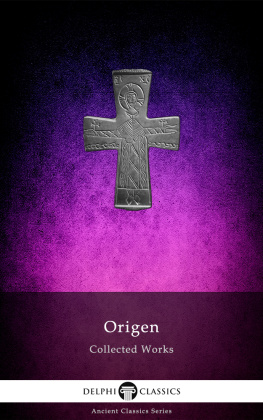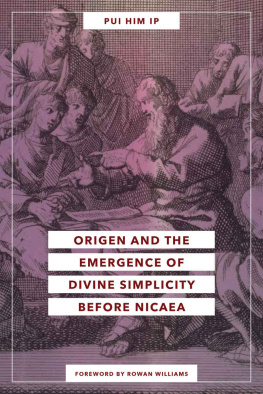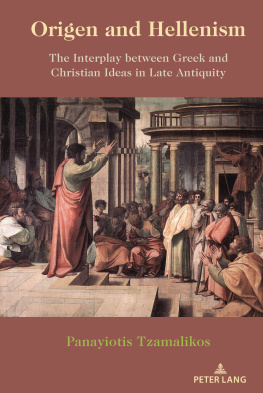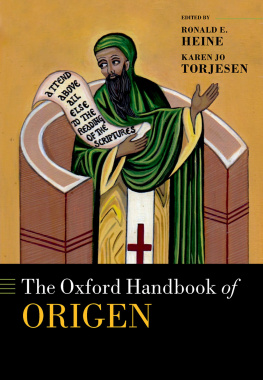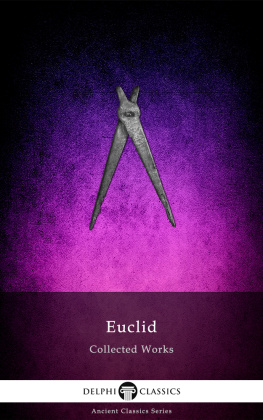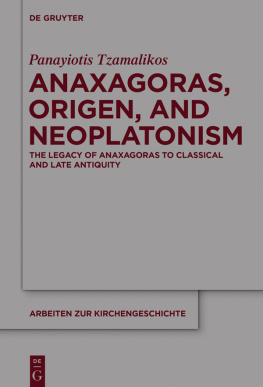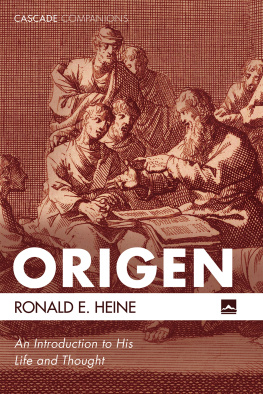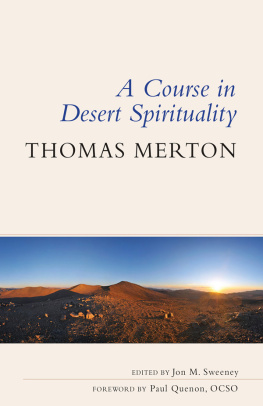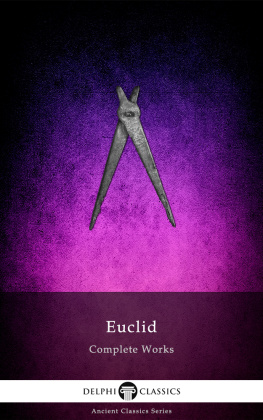Origen of Alexandria - Collected Works of Origen
Here you can read online Origen of Alexandria - Collected Works of Origen full text of the book (entire story) in english for free. Download pdf and epub, get meaning, cover and reviews about this ebook. year: 2020, publisher: Delphi Classics, genre: Religion. Description of the work, (preface) as well as reviews are available. Best literature library LitArk.com created for fans of good reading and offers a wide selection of genres:
Romance novel
Science fiction
Adventure
Detective
Science
History
Home and family
Prose
Art
Politics
Computer
Non-fiction
Religion
Business
Children
Humor
Choose a favorite category and find really read worthwhile books. Enjoy immersion in the world of imagination, feel the emotions of the characters or learn something new for yourself, make an fascinating discovery.
- Book:Collected Works of Origen
- Author:
- Publisher:Delphi Classics
- Genre:
- Year:2020
- Rating:4 / 5
- Favourites:Add to favourites
- Your mark:
- 80
- 1
- 2
- 3
- 4
- 5
Collected Works of Origen: summary, description and annotation
We offer to read an annotation, description, summary or preface (depends on what the author of the book "Collected Works of Origen" wrote himself). If you haven't found the necessary information about the book — write in the comments, we will try to find it.
Collected Works of Origen — read online for free the complete book (whole text) full work
Below is the text of the book, divided by pages. System saving the place of the last page read, allows you to conveniently read the book "Collected Works of Origen" online for free, without having to search again every time where you left off. Put a bookmark, and you can go to the page where you finished reading at any time.
Font size:
Interval:
Bookmark:

The Collected Works of
ORIGEN
(c. 184-c. 253)

Contents

Delphi Classics 2020
Version 1

Browse Ancient Classics







The Collected Works of
ORIGEN OF ALEXANDRIA


By Delphi Classics, 2020
Collected Works of Origen

First published in the United Kingdom in 2020 by Delphi Classics.
Delphi Classics, 2020.
All rights reserved. No part of this publication may be reproduced, stored in a retrieval system, or transmitted, in any form or by any means, without the prior permission in writing of the publisher, nor be otherwise circulated in any form other than that in which it is published.
ISBN: 978 1 91348 746 1
Delphi Classics
is an imprint of
Delphi Publishing Ltd
Hastings, East Sussex
United Kingdom
Contact: sales@delphiclassics.com

www.delphiclassics.com

Alexandria, the capital of Roman Egypt Origens birthplace

Alexandria in the late eighteenth century by Luigi Mayer

Roman ruins at Alexandria

Translated by Frederick Crombie, 1885
This treatise is now regarded as the first systematic exposition of Christian theology. Origen was a young man when he wrote it, between the years 220 and 230, while still living in Alexandria. Fragments from Books 3.1 and 4.1-3 of Origens Greek original are preserved in Origens Philokalia . A few smaller quotations of the original Greek are preserved in Justinians Letter to Mennas . However, the majority of the text has only survived in a heavily abridged Latin translation produced by Tyrannius Rufinus in 397. Rufinus was convinced that Origens original treatise had been interpolated by heretics and that these interpolations were the source of the heterodox teachings found in it. Therefore, he heavily modified Origens text, omitting and altering any parts that disagreed with contemporary Christian orthodoxy.
Indeed, Jerome was so appalled by Rufinus lack of fidelity to the original Greek that he resolved to produce his own Latin translation of On the First Principles, in which he would translate every word exactly as it was written, revealing Origens heresies to the world. Jeromes translation, however, has been lost in its entirety.
The treatise opens with an essay explaining the nature of theology. Book I concerns the heavenly world, with descriptions of the oneness of God, the relationship between the three persons of the Trinity, the nature of the divine spirit, reason and angels. Book II explains the world of man, including the incarnation of the Logos, the soul, free will and eschatology. Book III principally deals with cosmology, sin and redemption. The final book deals with teleology and an interpretation of the scriptures.

Frederick Bloemaerts seventeenth century depiction of Tyrannius Rufinus (344/345-411), who was a monk, historian and theologian. He is best known as a translator of Greek patristic material, especially the work of Origen into Latin.

1. A LL WHO
it seems on that account necessary first of all to fix a definite limit and to lay down an unmistakable rule regarding each one of these, and then to pass to the investigation of other points. For as we ceased to seek for truth (notwithstanding the professions of many among Greeks and Barbarians to make it known) among all who claimed it for erroneous opinions, after we had come to believe that Christ was the Son of God, and were persuaded that we must learn it from Himself; so, seeing there are many who think they hold the opinions of Christ, and yet some of these think differently from their predecessors, yet as the teaching of the Church, transmitted in orderly succession from the apostles, and remaining in the Churches to the present day, is still preserved, that alone is to be accepted as truth which differs in no respect from ecclesiastical and apostolical tradition.
3. Now it ought to be known that the holy apostles, in preaching the faith of Christ, delivered themselves with the utmost clearness on certain points which they believed to be necessary to every one, even to those who seemed somewhat dull in the investigation of divine knowledge; leaving, however, the grounds of their statements to be examined into by those who should deserve the excellent gifts of the Spirit, and who, especially by means of the Holy Spirit Himself, should obtain the gift of language, of wisdom, and of knowledge: while on other subjects they merely stated the fact that things were so, keeping silence as to the manner or origin of their existence; clearly in order that the more zealous of their successors, who should be lovers of wisdom, might have a subject of exercise on which to display the fruit of their talents, those persons, I mean, who should prepare themselves to be fit and worthy receivers of wisdom.
clearly delivered in the teaching of the apostles are as follow:
First , That there is one God, who created and arranged all things, and who, when nothing existed, called all things into being God from the first creation and foundation of the world the God of all just men, of Adam, Abel, Seth, Enos, Enoch, Noe, Sere, Abraham, Isaac, Jacob, the twelve patriarchs, Moses, and the prophets; and that this God in the last days, as He had announced beforehand by His prophets, sent our Lord Jesus Christ to call in the first place Israel to Himself, and in the second place the Gentiles, after the unfaithfulness of the people of Israel. This just and good God, the Father of our Lord Jesus Christ, Himself gave the law and the prophets, and the Gospels, being also the God of the apostles and of the Old and New Testaments.
Next pageFont size:
Interval:
Bookmark:
Similar books «Collected Works of Origen»
Look at similar books to Collected Works of Origen. We have selected literature similar in name and meaning in the hope of providing readers with more options to find new, interesting, not yet read works.
Discussion, reviews of the book Collected Works of Origen and just readers' own opinions. Leave your comments, write what you think about the work, its meaning or the main characters. Specify what exactly you liked and what you didn't like, and why you think so.

